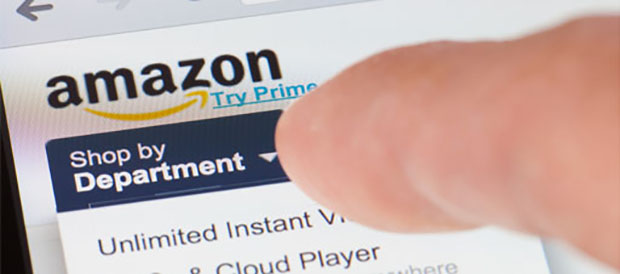
Most common Amazon Prime scams
Amazon Prime is a membership program offered by the online retailer Amazon.com. Prime members receive free shipping on eligible items, unlimited video streaming, exclusive access to deals and discounts, and more. Unfortunately, scammers have also found a field here to extort money and personal data from you posing as Amazon Prime. In this article, we would like to introduce you to the most common procedures and practices that scammers and fraudsters use and show you how to avoid them.
What are the most common Amazon Prime scams?
There are a few different types of scams that are common among Amazon Prime members. One type of scam is when someone tries to sell you something that is not actually available through Amazon Prime. This can happen in a few different ways. One of them is when someone offers to sell you a product that is “out of stock” on Amazon. They may also try to sell you a product that is not available in your country.
Another type of scam is when someone tries to get you to sign up for a free trial of a service or product that they are selling. Often, these trials are actually only for a short period of time, and then the person will start charging you for the full service or product.
Finally, some people will try to scam you by offering you a “free” gift card or other prize if you sign up for their service or buy their product. These gifts are often nothing more than a way to get your credit card information so that they can start charging you without your knowledge. If you ever receive an offer like this, make sure to do your research before giving out any personal information. Remember, if something sounds too good to be true, it probably is!

How can you tell if it's a scam?
When it comes to Amazon Prime, there are a few things that you need to keep in mind in order to avoid being scammed.
First and foremost, always remember to check the URL before you enter any personal or financial information. The URL should always begin with “https://” – if it doesn’t, then it’s not a secure site and you should not enter any sensitive information. Also, keep in mind the domain name; some scammers may send you links that are not connected to amazon prime such "Amazom", "Amaz0n,", "Amason" or even "Amasom".
Another thing to look out for are fake emails or phishing attempts. These will often look like they’re from Amazon, but if you take a closer look, you’ll see that the sender address is actually spoofed. If you get an email that looks suspicious, don’t click on any links or enter any information – just delete it.
Finally, be wary of any third-party websites that claim to offer Amazon Prime memberships for a discount. These are almost always scams, and you could end up giving your financial information to someone who could use it maliciously. If you’re ever unsure about a website, you can always contact Amazon customer service to ask if it’s legitimate.
Scammer may call and write to you giving various reasons. One of them is to inform you of security problems with your account by using an Amazon gift card. They may also encourage you to buy gift cards for your employees. It is also increasingly common to be offered a work-from-home Amazon job and then claim that you need to pay a start-up fee via a gift card.
As you can see, there are many ways that the scammer can use to fraud you. That's why it is so important to be vigilant. Remember that fraudsters know very well what they are doing. They will try to get you to trust them with actions that are very deliberate, so that you don't guess anything.

How do I know if an e-mail is not from Amazon?
A phishing email is a malicious message which seeks to obtain information from a customer. They look primarily like they originate from Amazon. Please look at any Amazon's emails and if they seem spoofed or phished please visit your online account.
When you are requested to provide new payment options at any point, your message is most likely not Amazon.
If you get an email or receive correspondence supposedly from Amazon, start by checking the sender's email address. Usually, these are random names. Amazon will always use the email address associated with their domain.
Usually, you will see "Dear Amazon Customer" instead of your full name at the beginning of your email. That should definitely turn on a red light as it's likely to be a scam.
Another thing that you certainly wouldn't see in legitimate emails from Amazon are: grammatical errors, strange fonts, phishing attempt and links, at the end of the message they will change the tone, give you a deadline of payment or even threaten you.
The link provided in the email is clearly false and leads to fake web address with a purpose to fraud your money and steal personal information. Be careful, as it is a scam website.
They may ask you for your login and password so that they can access your computer or amazon account when you log in.
What problems can they write with?
You may be asked to settle an overdue payment, be informed of a problem with your account or asked to update your personal details. They can also try a completely different approach. To obtain your personal details, they may contact you to inform you that you are entitled to a refund because you paid too much for your Amazon Prime subscription.
Suspicious phone call from Amazon - what to do?
Another form of communication scammers use is phone calls, with which they can distress you.
If you receive a suspicious phone call claiming to be from Amazon, here are some things you can look out for:
Amazon will never ask for payment or offer you a refund. Do not expect or make a payment outside of their website (be it via bank transfer, e-mailing credit card details or paying by debit or credit card online). If you are concerned if a phone call is from Amazon and you suspect this might be a scam. You may be a potential victim. Hang up and check this immediately via official Amazon customer service. Contact Amazon and see if their employee has called you. Any form of contact should be recorded in their system. If not, you will be able to notify them of the attempted fraud. They will advise you when you can report this scam call.

Never give any remote access to your mobile phone or computer!
Amazon states on their website that they will NEVER call and ask you to install an app or ask for remote access to your computer. They advise that if you receive a suspicious call, email or text claiming to be from Amazon which asks for personal information, a payment or offers a refund you don't expect, you should not give out any personal information.
First of all, giving someone else remote access to your device can be a security risk. They could potentially gain access to sensitive information or even install malicious software on your device. Secondly, if you do give someone else remote access to your device, they may be able to make changes to it that you don't want them to. This could include deleting important files, changing settings, installing unwanted programs or even locking you out of your own computer! Finally, giving someone else remote access to your device can be a privacy risk. They could potentially view or collect personal information about you without your consent. So, it's important to remember that you should never give any remote access to your mobile phone or computer. If someone asks for this access, make sure you know who they are and what they want to do with your device.
How can you protect your personal data?
When it comes to protecting your personal data, there are a few key things you can do to help keep yourself safe from scammers. First and foremost, never give out your personal information to anyone online unless you are absolutely sure that they are who they say they are. This includes things like your national insurance number, personal ID, driving licence, login or passwords, pay slips, your address, credit card or bank account information. If someone asks for this type of things from you, be very wary and consider whether or not giving it to them is worth the risk.
Another important thing to remember is to be careful about what information you share on social media and other public forums. Scammers can often find out a lot about you just by looking at your public profile, so it’s important to be mindful of what you post. Try to avoid sharing things like your full name, address, or date of birth on social media or other public forums. If you must share this type of information, be sure to do so in a way that makes it difficult for someone to find and use it against you.
Finally, always keep your personal information safe. Have a strong password, which you are changing every couple of weeks, set up 2-step verification on your Amazon and social media accounts.

Beware of fake text messages
If you receive a text message claiming to be from Amazon Prime, be careful!
This is a scam that is currently circulating in the UK. The text message claims that you have been selected to receive a free £100 Amazon voucher, and includes a link to claim your prize. However, clicking on the link will take you to a fake website that is designed to steal your personal information. If you receive this text message, do not click on the link! Delete it immediately and report it to Action Fraud, the UK's national fraud and cybercrime reporting centre.
Why do scammers want your information?
There are a few reasons why scammers might want your personal information. They could be trying to steal your identity and use it to commit fraud, take out loans or open credit cards in your name, make purchases in your name or sell your information to other criminals.
Identity theft can cause a lot of financial damage and emotional stress, so it's important to be vigilant about protecting your personal information. If you think you might be a target of identity theft, there are a few things you can do to help protect yourself, like monitoring your credit report and being careful about who you give your information to.
Report any Amazon scam phone calls, e-mails and text messages.
If you think you may be a potential victim and you would like to report scams call Action Fraud - at telephone number 0300 123 2040. If you have provided your bank details or made a payment, speak to your financial institution immediately.
To report scams or to obtain advice, contact Citizens Advice Consumer Service on 0808 223 1133.

Amazon Prime account - how to avoid being scammed?
First of all - be careful. Check every message, the sender details, contents or a phone number. You can verify most of the information on the Internet. If you are unsure, contact Amazon's online help and support department.
Remember, never share any private information, passwords, bank details and do not click in any link provided in the email or text messages. Be suspicious and alert. Check all information on the internet, be inquisitive and ask questions of the caller. If you suspect a scam - hang up.
By following these simple tips, you can help protect yourself from being scammed on Amazon Prime. Just remember to be vigilant and trust your gut – if something seems too good to be true, it probably is. By following these simple tips, you can help protect yourself from becoming a victim of amazon fraud or scams. Remember to be vigilant about what you share online and always take the time to verify who you’re dealing with before giving out any personal information. If something doesn’t feel right, don’t hesitate to reach out for help.
Was this information helpful? We hope you now know what to do to avoid being scammed.